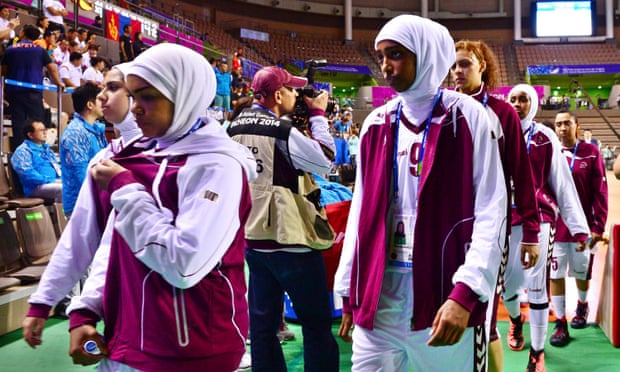
Bilqis Abdul-Qaadir has been playing basketball for 22 years, holding the scoring record by a high school player in her home state of Massachusetts. The former Division1 NCAA player says that she has not had the chance to fulfill her life-long dream of playing professional basketball due to Rule 4.2.2. of FIBA (basketball’s governing body) which states that “players shall not wear equipment (objects) that may cause injury to other players.” It’s a rule that bans hijabs, turbans and yarmulkes. [The NCAA does not have a hijab ban so Ms. Abdul-Qaadir was able to play during college.]
Indira Kaljo is president and founder of Global Active, a non-profit that empowers Muslim girls in sports, and says that she also was not able to play professional ball due to the ban. For more than two years, she has lobbied on Twitter with the #FIBAAllowHijab hashhag, and organized 24 basketball players and supporters with a Change.org campaign that has garnered more than 130,000 signatures worldwide.
According to Ms. Abdul-Qaadir, faith and basketball have always gone together for her. “Basketball was my door way to my spirituality and self-identity,” she says. “It strengthened me in every way possible. It brought me closer to God, and that in itself is an irreplaceable feeling.”
For Ms. Kaljo, who currently works as a basketball coach and teacher, the most difficult part of the ban was “having to retire from the professional play before I was ready to retire myself.”
UPDATE:
On February 3rd, FIBA released the following statement: “After initiating a revision process of the headgear rule (Article 4.4.2) of the Official Basketball Rules in September 2014, the Board received a report on the impact of the exceptions applied on a domestic level during a two-year period. It favored a modification of the rule and issued a mandate for the Technical Commission to come forward with a proposal that would allow headgear to be worn safely by athletes. This will be presented to the Mid-Term Congress in May.”



